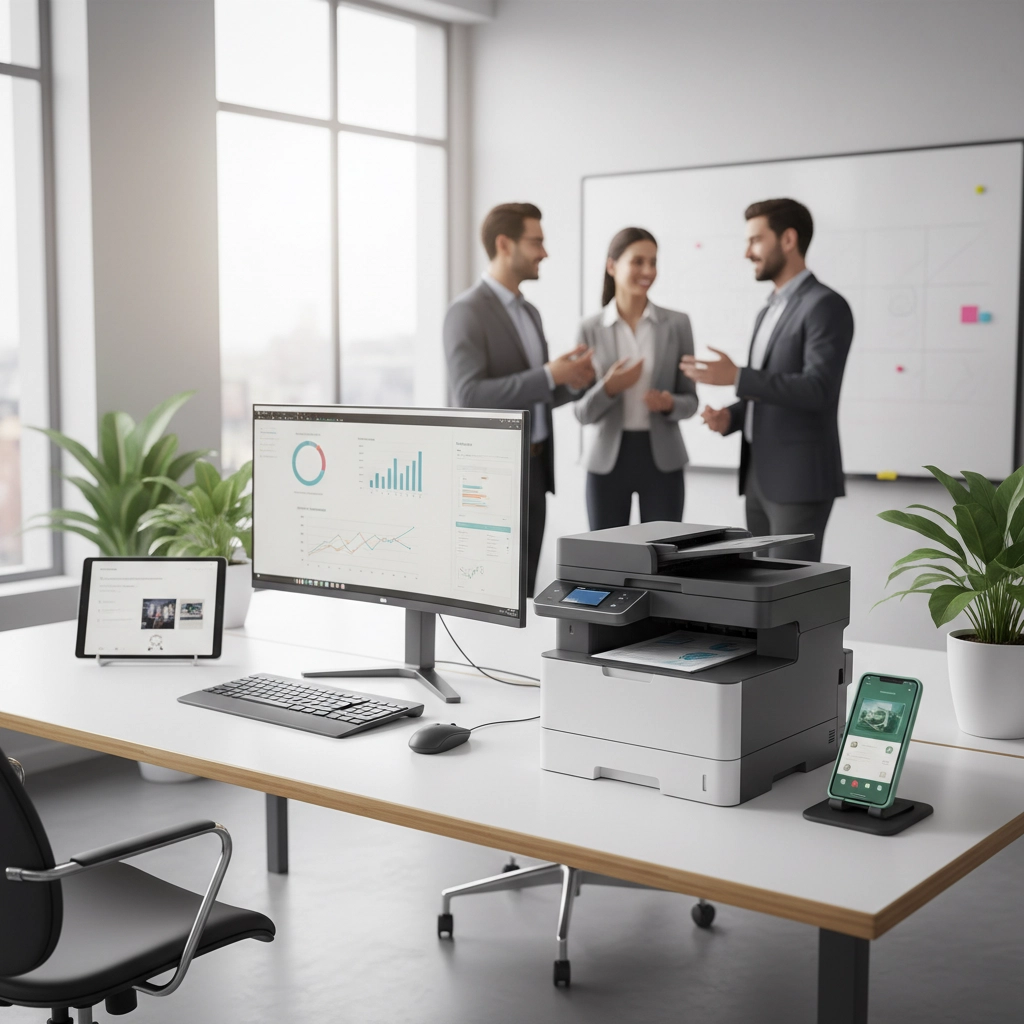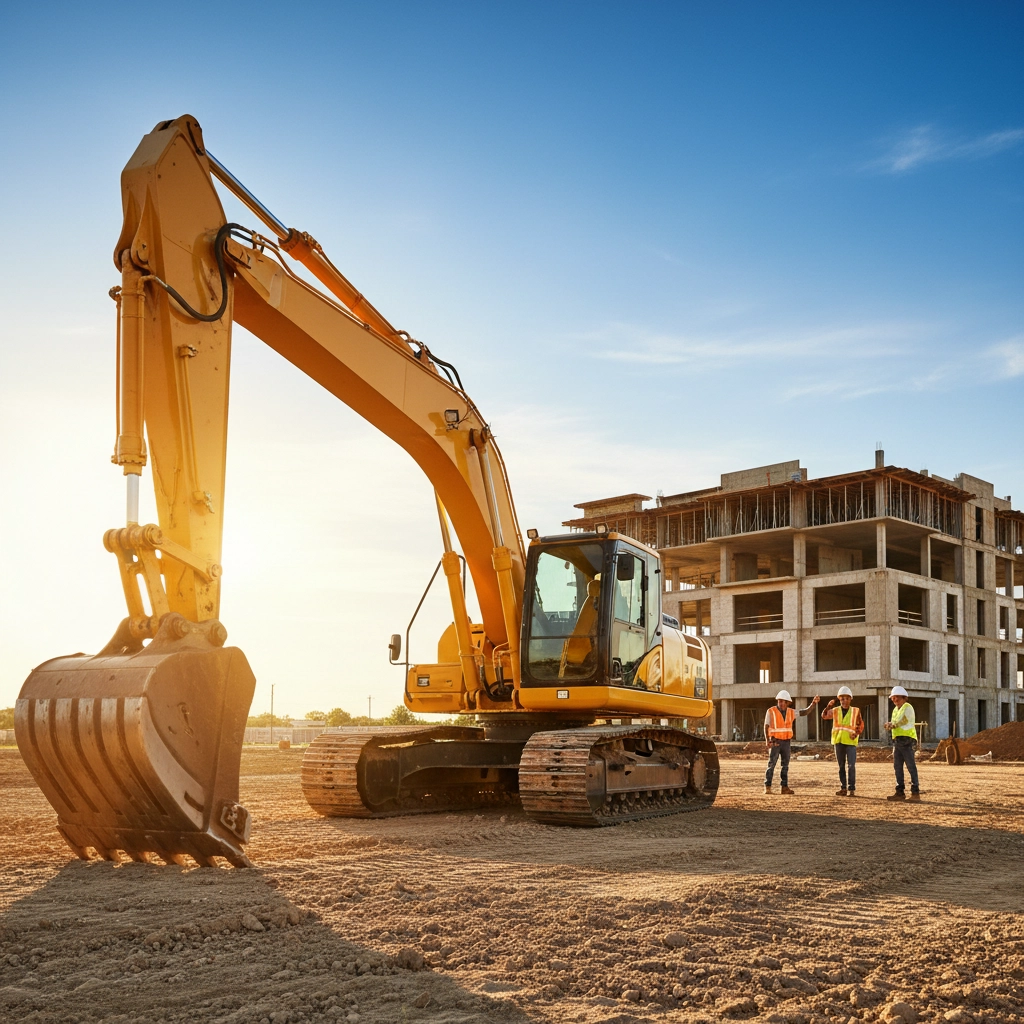Okay, let's be honest here: the IRS isn't going to cut you a check for that new excavator or send you cash for those fancy computers. But here's the thing: with the right tax strategies, Uncle Sam can dramatically reduce what you actually pay out of pocket for business equipment. It's like having a business partner who contributes to every major purchase, except this partner wears a suit and speaks in tax code.
Important Disclaimer: Simplified Capital provides financing solutions, not tax advice. We're experts at getting you funded fast, but we're not CPAs or tax attorneys. Always consult with a qualified tax professional to verify these strategies apply to your specific situation. Now, let's dive into how smart business owners make their equipment purchases work harder for them!
1. Master the Section 179 Deduction (Your New Best Friend)
Section 179 is like having a magic wand for equipment purchases. For 2024, you can deduct up to $1.22 million in qualifying equipment purchases in the same year you buy them. That means instead of spreading depreciation over several years, you get the full tax benefit immediately.
Here's how it works: Buy a $50,000 piece of equipment in December, and you can potentially deduct the full $50,000 from this year's taxable income. If you're in a 25% tax bracket, that's $12,500 back in your pocket: making your real cost just $37,500.
The catch? Your business needs to show a profit, and there are limits based on total equipment purchases. But for most small businesses, Section 179 is pure gold.
2. Stack Bonus Depreciation on Top
Here's where it gets interesting. Bonus depreciation allows you to deduct an additional percentage of qualifying property costs in the first year. While the percentage has been phasing down (it was 80% in 2023), you can often combine this with Section 179 for maximum impact.
Think of it as a one-two punch: Section 179 handles the first chunk, and bonus depreciation can help with additional purchases. A smart accountant can help you optimize which deduction to use for which equipment.
3. Time Your Purchases Like a Pro
Want to know a secret? The IRS doesn't care if you buy equipment on January 1st or December 31st: you get the full year's deduction either way. This timing strategy can be incredibly powerful.
Let's say you're having a great year and need to reduce taxable income. Accelerating equipment purchases into the current tax year can provide immediate tax relief. Conversely, if this year is lean but next year looks promising, you might delay purchases to maximize future deductions.
4. Choose Your Business Structure Wisely
Your business structure affects how equipment deductions work. S-Corps, LLCs, partnerships, and sole proprietorships all have different rules and limitations. Some structures allow you to pass equipment deductions directly to owners, while others keep them at the business level.
This isn't a DIY decision: get professional guidance on the optimal structure for your equipment acquisition strategy.
5. Leverage Smart Leasing Strategies
Sometimes the best way to "buy" equipment is not to buy it at all. Certain lease structures can provide immediate deductibility of lease payments while keeping equipment off your balance sheet.
True leases (where the lessor retains ownership) typically allow you to deduct 100% of lease payments as operating expenses. This can be especially powerful for equipment that rapidly becomes obsolete or has high maintenance costs. And don't forget, you can accelerate the tax benefits into the term of the lease (with an operating lease), so sometimes 24 months is better than 36 months, 48 months may be better than 36 months, or vice versa.
6. Maximize Business Use Percentage
The IRS allows deductions based on the percentage of business use. If you buy a truck that's used 80% for business and 20% for personal use, you can deduct 80% of eligible expenses and depreciation.
Keep detailed logs and documentation. The more you can prove business use, the larger your deductible percentage. This applies to vehicles, computers, phones, and other mixed-use equipment.
7. Take Advantage of Energy Efficiency Credits
Going green can put money back in your pocket. Various federal and state credits are available for energy-efficient equipment, solar installations, and other environmentally friendly purchases.
These aren't just deductions: they're credits that directly reduce your tax liability dollar-for-dollar. A $10,000 credit reduces your tax bill by $10,000, not just your taxable income.
8. Don't Forget State and Local Incentives
While we're talking about the IRS, don't ignore state and local tax benefits. Many jurisdictions offer additional deductions, credits, or even cash incentives for equipment purchases that create jobs or improve efficiency.
Research what's available in your area. Some programs are first-come, first-served, so timing matters.
9. Optimize Trade-In Strategies
When replacing equipment, the trade-in versus sell-and-buy-new decision can significantly impact your tax situation. Sometimes a trade-in provides better tax treatment through like-kind exchange rules, while other times selling separately maximizes deductions.
This is particularly relevant for vehicles, construction equipment, and other assets that hold significant resale value.
10. Strategic Asset Classification
Not all equipment is created equal in the IRS's eyes. The classification affects depreciation schedules, Section 179 eligibility, and bonus depreciation treatment.
Understanding whether equipment is classified as 3-year, 5-year, 7-year, or other property can help you optimize your overall tax strategy. Sometimes it pays to buy separate items rather than package deals, or vice versa.
The Bottom Line: Smart Financing Makes It All Possible
Here's the reality: all these tax strategies are meaningless if you can't get the equipment financing you need when you need it. That's where Simplified Capital shines.
We specialize in fast, flexible equipment financing that works with your tax optimization strategies. Need to close before year-end to maximize Section 179? We can get you approved and funded quickly. Want to structure lease payments to optimize deductibility? We have options.
Our streamlined application process means less paperwork and faster decisions. While other lenders are still asking for your college transcripts, we're focused on getting you the equipment you need to grow your business.
Ready to Make Your Next Equipment Purchase Work Harder?
Remember, we can't provide tax advice, but we can provide the financing solutions that make these tax strategies possible. Every day you wait is money potentially left on the table, especially with year-end deadlines approaching.
Don't let another opportunity pass by. Contact Simplified Capital today to discuss how we can help you acquire the equipment your business needs while maximizing your tax advantages. Our experienced team understands the urgency of tax-driven equipment purchases and can work with your timeline.
Ready to get started? Apply now or call us to discuss your equipment financing needs. Your business: and your tax bill: will thank you.
The IRS might not write you a check, but with the right strategies and financing partner, they'll help make your equipment purchases much more affordable. That's almost as good as free money: and definitely better than waiting another year to grow your business.
Simplified Capital today at simplifiedcapital.com or apply now
Phone: (866) 810-1305
Email: info@simplifiedcapital.com
Website: www.simplifiedcapital.com





